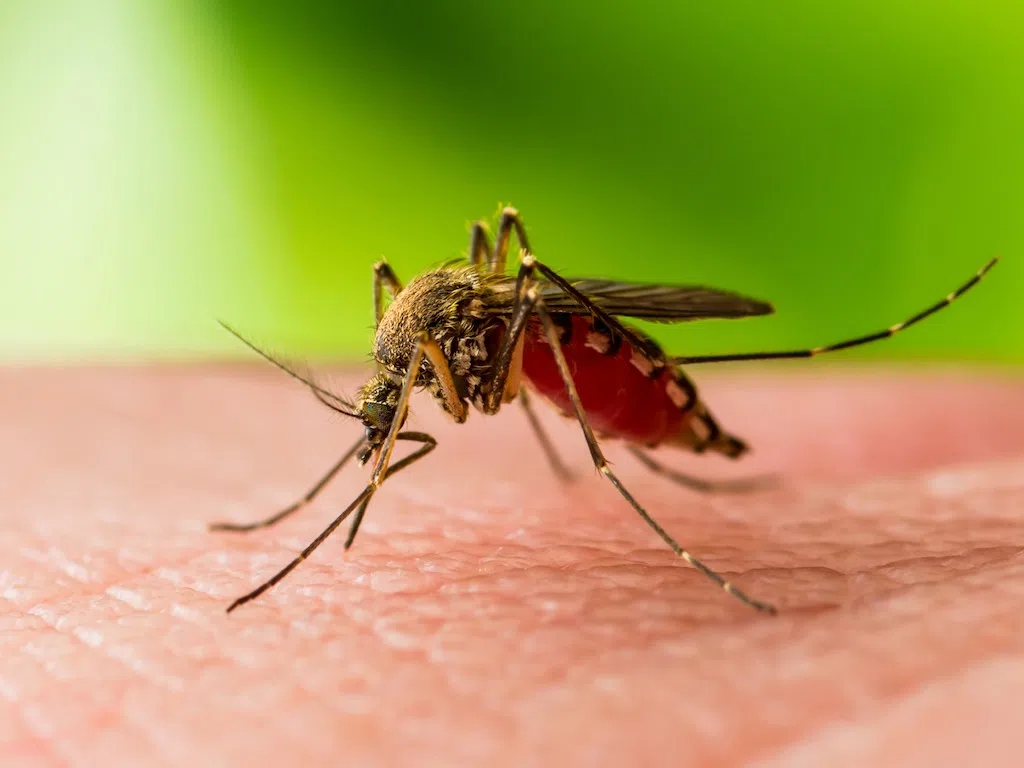RALEIGH, N.C. — The North Carolina Department of Health and Human Services announced Tuesday the state’s first case of disease associated with West Nile virus in 2025, involving a resident of Durham County. Health officials are withholding additional details to protect patient privacy.
The case coincides with the recent detection of West Nile virus-infected mosquitoes through routine monitoring in Pitt County, part of an ongoing collaboration between Pitt County Vector Control and NCDHHS to prevent transmission of mosquito-borne diseases.
Peak Season for West Nile Activity
“This is the time of year when West Nile virus activity typically increases across North Carolina,” said Emily Herring, NCDHHS Public Health Veterinarian. “This recent case highlights the importance of preventing mosquito bites to reduce the risk of infection.”
West Nile virus represents a serious public health concern, as it can cause life-altering neurological disease or death. In North Carolina, only cases involving neurologic illness are required to be reported to health authorities.
Understanding West Nile Virus Transmission
The virus follows a specific transmission cycle, carried by wild birds and transmitted to humans through infected mosquito bites. Importantly, the virus does not spread from person to person, making mosquito prevention the primary defense strategy.
Most people infected with West Nile virus experience no symptoms whatsoever. However, approximately 20% of infected individuals develop fever accompanied by symptoms including headache, body aches, and joint pain.
The most severe cases affect roughly one in 150 infected people, who develop serious neurological illness with symptoms such as high fever, headache, neck stiffness, disorientation, seizures, and paralysis. Elderly individuals and those with compromised immune systems face elevated risks for severe complications.
When to Seek Medical Care
Health officials advise anyone experiencing symptoms consistent with West Nile virus infection to contact their healthcare provider promptly for evaluation and appropriate care.
Prevention Strategies
While not all mosquitoes carry West Nile virus, the species most commonly responsible for transmission are found throughout North Carolina and remain most active between dusk and dawn.
Personal Protection Measures
Health experts recommend several key strategies to prevent mosquito bites:
- Use EPA-registered insect repellents when outdoors, following all label instructions
- Wear clothing and gear treated with permethrin
- Choose loose-fitting, long-sleeved shirts and pants for outdoor activities
Property Management
Homeowners can significantly reduce mosquito breeding by eliminating standing water sources:
- Empty containers that collect rainwater, including flowerpot saucers, toys, buckets, and tires
- Change water in birdbaths and pet bowls at least twice weekly
- Maintain clean, properly functioning gutters and replace corrugated downspout extensions with smooth alternatives
- Ensure rain barrels have tight-fitting screens or lids
- Apply EPA-approved larvicides to standing water that cannot be eliminated
- Drain puddles and ditches that hold water for more than four days after rainfall
Home Protection
- Install and maintain tight-fitting screens on windows and doors
- Repair any tears in existing screens to prevent mosquito entry
Additional Resources
For comprehensive information about West Nile virus and prevention strategies, residents can visit the NCDHHS West Nile Virus webpage or the CDC West Nile virus webpage. Additional guidance on preventing mosquito bites is also available through these official channels.







